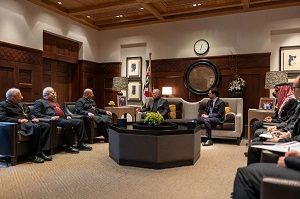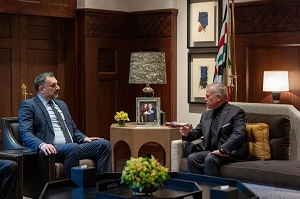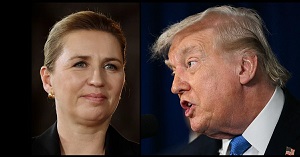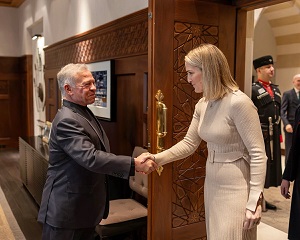Divided Britain Sees 'New Dawn' in Historic Farewell to EU
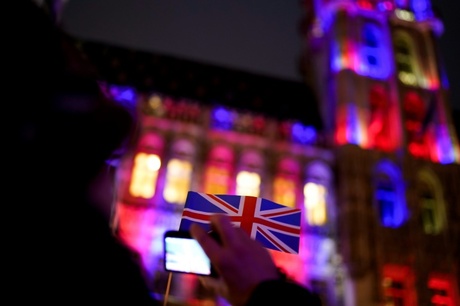
AFP
Britain on Friday ends almost half a century of integration with Europe, finally making its historic departure from the EU to begin a new -- but still uncertain -- future, with emotions running high following years of wrangling and several false starts.
As the clocks strike 11:00pm (2300 GMT) in Britain, the bloc's often reluctant member becomes the first to leave an organisation set up to forge unity among nations after the horrors of World War II.
The country's departure has exposed deep divisions in British society -- and soul-searching in Brussels about the impact of the loss of 66 million people, a global diplomatic big-hitter and the clout of the City of London financial center.
Prime Minister Boris Johnson was a figurehead in the 2016 referendum vote to end 47 years of increasingly close ties between the British and more than 500 million of their nearest neighbors.
He has promised to unite the island nation in a new era of prosperity, forging new links further from home.
"This is not an end but a beginning. This is the moment when the dawn breaks and the curtain goes up on a new act," he said.
- A 'sea change' -
EU institutions began removing Union flags in Brussels on Friday in preparation for a divorce that German Chancellor Angela Merkel has called it a "sea-change" for the bloc, while French President Emmanuel Macron described it as a "historic warning sign" that should force Europe to stop and reflect.
Britain's departure was sealed at an emotional EU parliament hearing this week that ended with MEPs singing a chorus of "Auld Lang Syne", a traditional Scottish song of farewell.
Although almost nothing will change immediately due to an 11-month transition period negotiated as part of an EU-UK exit deal ratified this week.
Britons will be able to work in and trade freely with EU nations until December 31, and vice versa, although the UK will no longer be represented in the bloc's institutions.
But legally, Britain is out.
And while the exit terms have been agreed, Britain must still strike a deal on future relations with the EU, its largest trading partner.
Both will set out their negotiating positions Monday.
"We want to have the best possible relationship with the United Kingdom, but it will never be as good as membership," European Commission president Ursula von der Leyen said in Brussels.
- Years of tumult -
Getting this far has been a traumatic process.
Despite Britain's resistance to many EU projects over the years -- it refused to join the single currency or the Schengen open travel area -- the 2016 vote to leave was a huge shock.
It unleashed political chaos in London, sparking years of bitter arguments that paralyzed parliament and forced the resignations of prime ministers David Cameron and Theresa May.
In the debate about why Britain voted to leave, some said voters saw the distant EU as a convenient scapegoat to punish the government in London, which backed staying in, for years of cuts and austerity that left many worse off.
Johnson brought an end to the turmoil with last month's decisive snap general election victory and parliamentary majority to ratify his revised Brexit deal.
But Britons remain as divided as they were nearly four years ago, when 52 percent voted to leave and 48 percent voted to remain in the EU.
In Scotland, where a majority in 2016 backed Britain remaining in the bloc, First Minister Nicola Sturgeon called it a moment of "sadness... tinged with anger".
She vowed to step up the campaign for Scottish independence, which Scots rejected in a 2014 vote.
In Northern Ireland, where there are fears Brexit could destabilize a hard-won peace after several decades of conflict over British rule, europhiles rallied in Belfast, parking a billboard in front of the devolved assembly. It read: "This island rejects Brexit."
- Parties and vigils -
Johnson, himself a polarizing figure, has said he is avoiding any major celebrations that might exacerbate divisions.
The Conservative leader hosted a special cabinet meeting in the northeastern city of Sunderland, which was the first to declare for Brexit in the 2016 vote.
A Downing Street spokesman said ministers discussed aiming to have 80 percent of Britain's commerce covered by free trade agreements within three years.
At 10:00pm, Johnson will broadcast to the nation, as a countdown clock is beamed onto the walls of Downing Street, before marking the occasion at a reception with English sparkling wine, and canapes topped with roast beef, Yorkshire pudding and Shropshire blue cheese.
Government buildings were lit up in the red, white and blue of the British flag. Millions of commemorative 50 pence coins will go into circulation.
Ex-MEP Nigel Farage, who has spent decades campaigning to leave the EU, is planning a large rally in nearby Parliament Square -- one of several pro-Brexit parties being held around the country.
"I'm pleased, it's about time, this has took far longer than it should have," said Eric Horsley, 67, from Hartlepool, northeast England.
Not everyone is celebrating, with vigils planned by pro-EU supporters.
"Today is a day of mourning," said Katrina Graham, 31, an Irish women's rights activist who lives in Brussels, at a protest in central London.
- Trade talks loom -
From Saturday, Britain will be free to strike trade deals around the world, including with the United States.
But exactly how that will work -- and at what cost to firms that depend on EU business -- is unclear.
Johnson has given himself just 11 months to negotiate a new partnership, covering everything from trade to security cooperation.
Brussels has already warned he must either limit his ambitions or ask for more time.
Irish Prime Minister Leo Varadkar warned Friday that a failure to reach a post-Brexit trade deal by the deadline would pose an "existential threat" to his country.
